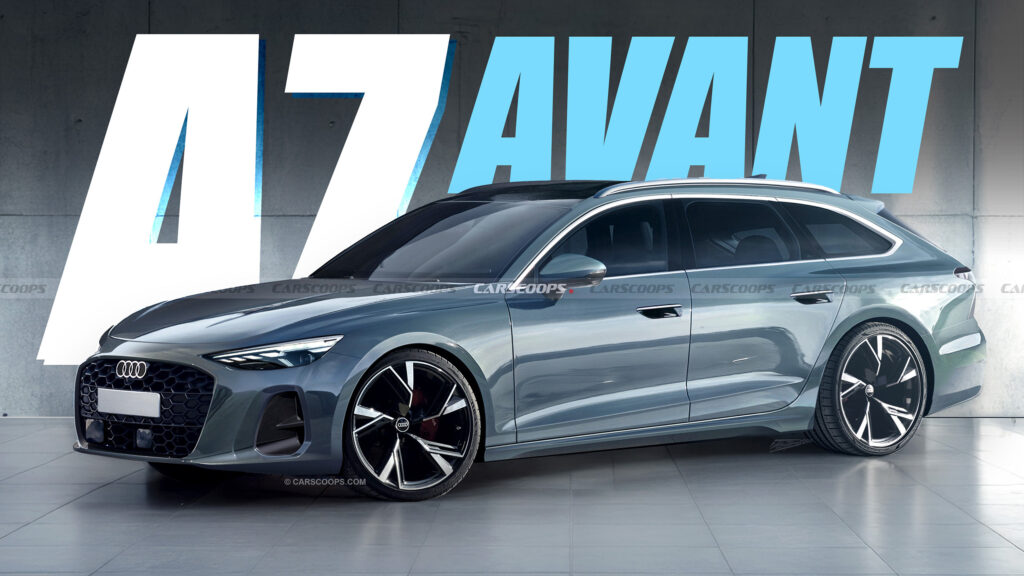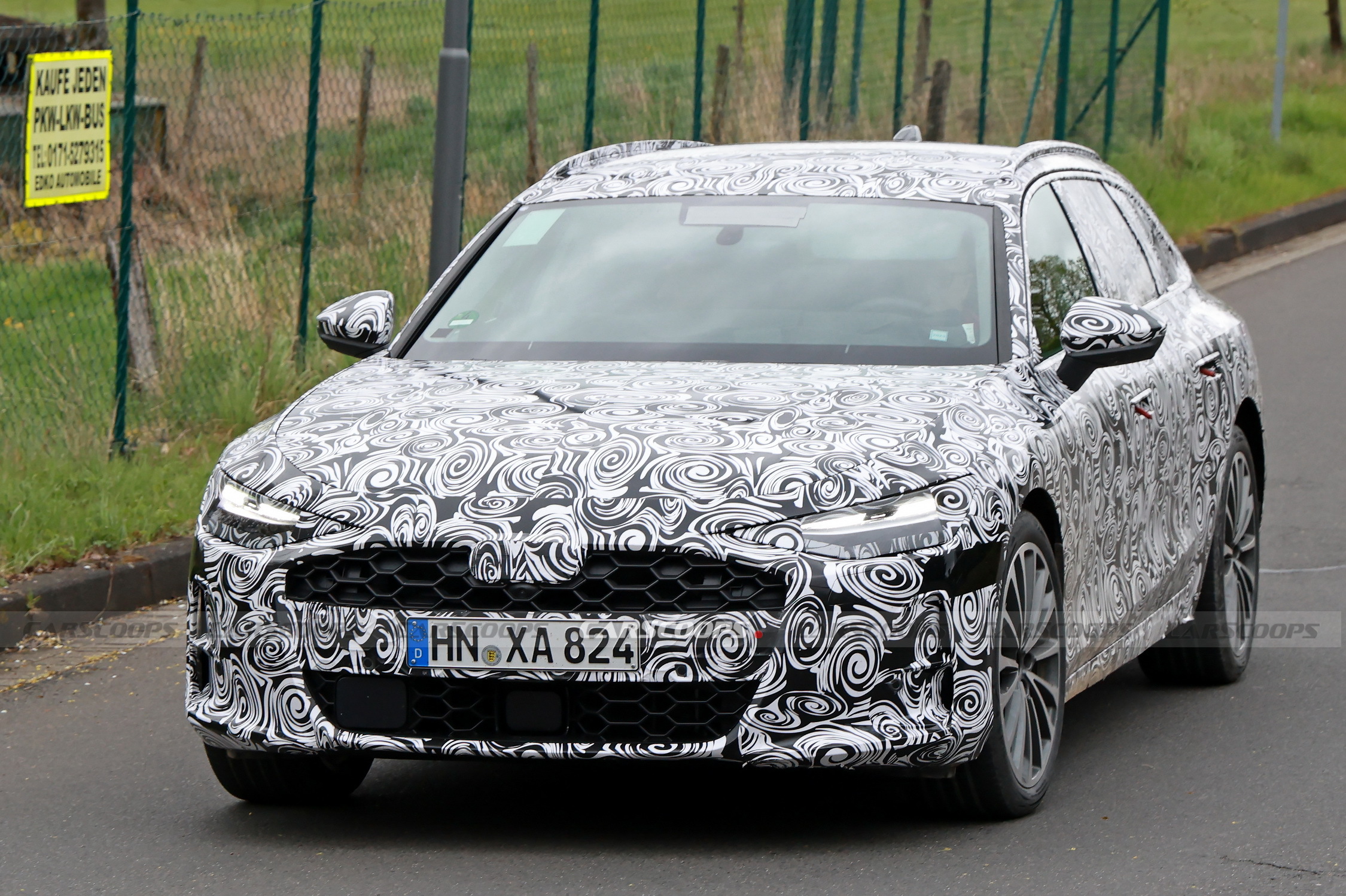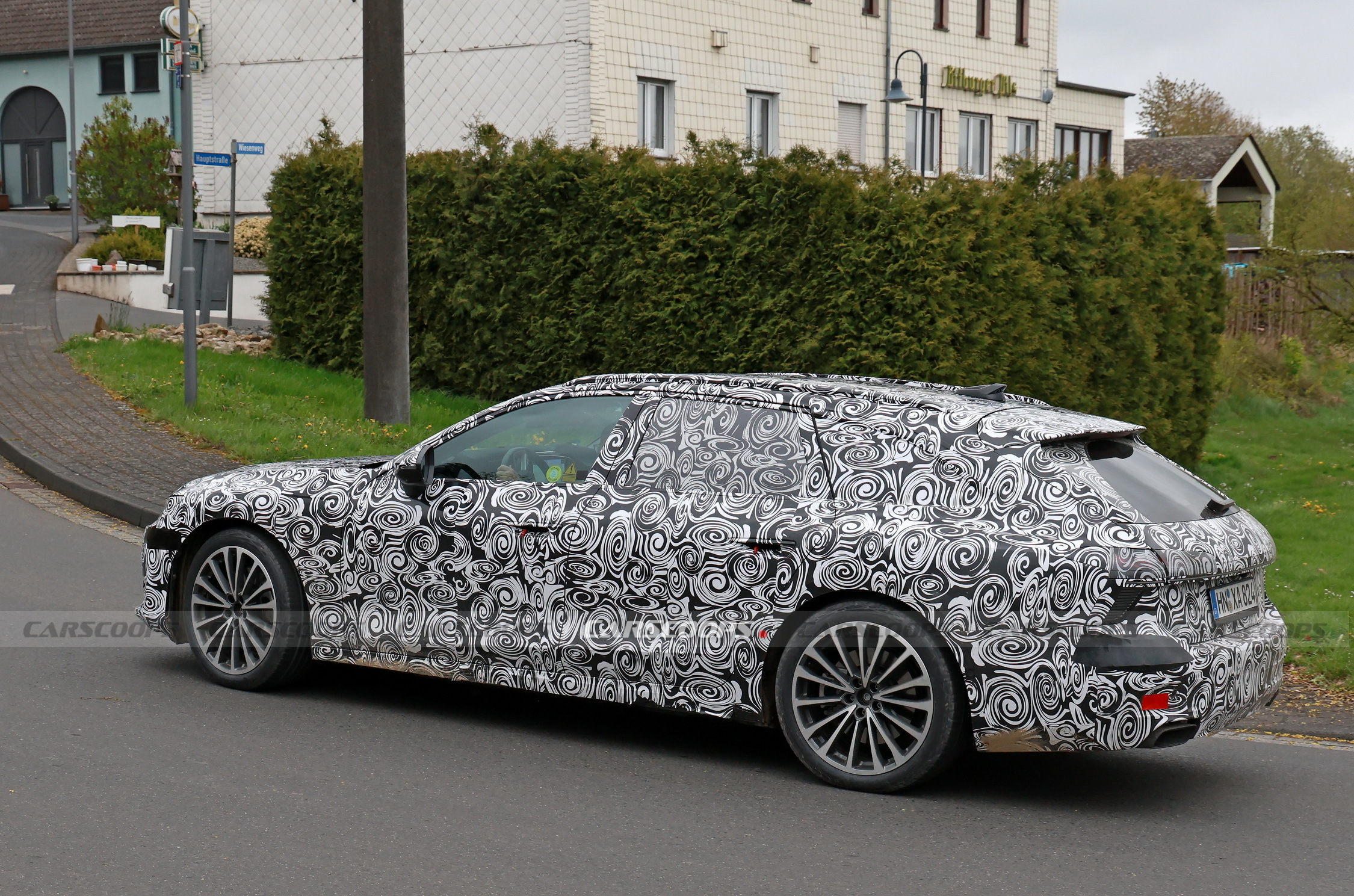- Audi’s new electric vehicle naming scheme bumps the A6 name to A7 for the next-generation gasoline model.
- It will have a sleeker, more organic design compared to the current A6, with a bolder front fascia and flowing body lines.
- Expect a mix of hybrid and plug-in hybrid options for efficiency, with potential for a high-performance PHEV variant exceeding 700 horsepower.
What’s in a name? Audi’s new nomenclature for electric and gasoline vehicles names EVs with even numbers, while the odds are reserved for the ICE models. So, what does that mean for the A6 sedan and wagon as we know it? The answer is simple: it becomes the all-new A7.
Naming migraines aside, our spies have captured it in Avant format, testing in various conditions, but Audi’s disguise doesn’t fool us. We’ve digitally removed the prototype camouflage to give you the best look to date. Let’s explore more.
Aggression and Elegance
Compared with the chiselled surfacing of the current C8 A6 range, the C9 generation is a far more organic affair. The front fascia sports a honeycomb mesh grille flanked by angular headlights and vertical air curtains, exuding a bold and aggressive stance.
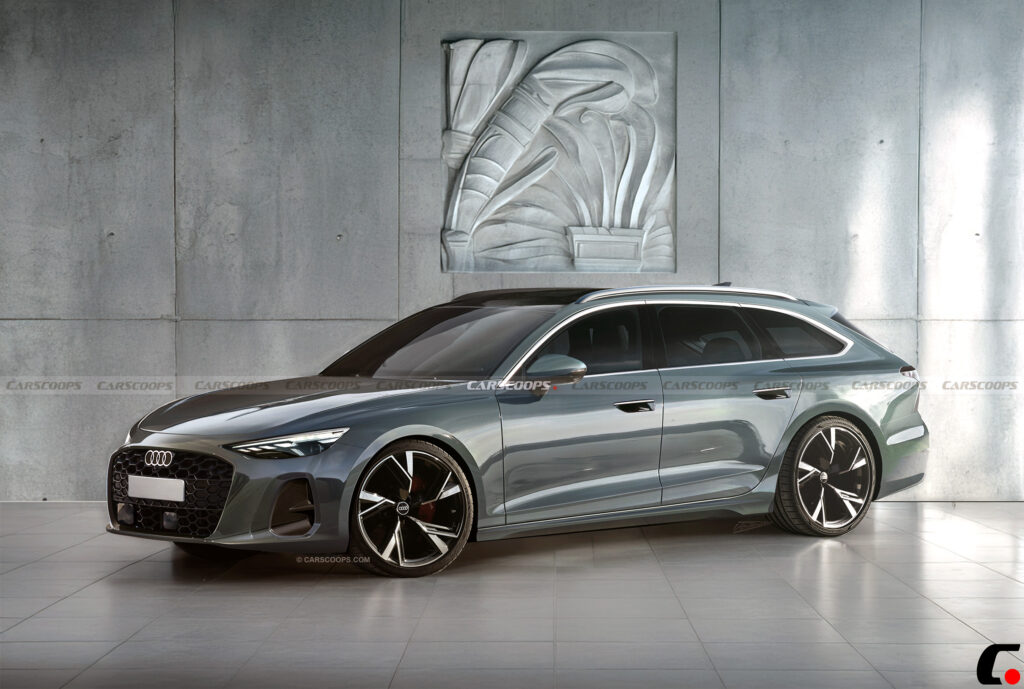
The side profile reveals a more evolutionary design, with flush-mounted door handles and smooth, curvy bodywork. The familiar greenhouse and an upward-sweeping beltline add to its sleek, aerodynamic appearance.
At the rear, slender OLED taillights are connected by a thin illuminated strip featuring vertical elements at the outer edges. A curvaceous rear bumper and a dual exhaust complete the go-fast yet sophisticated look.
Under the Skin: Premium Platform Combustion
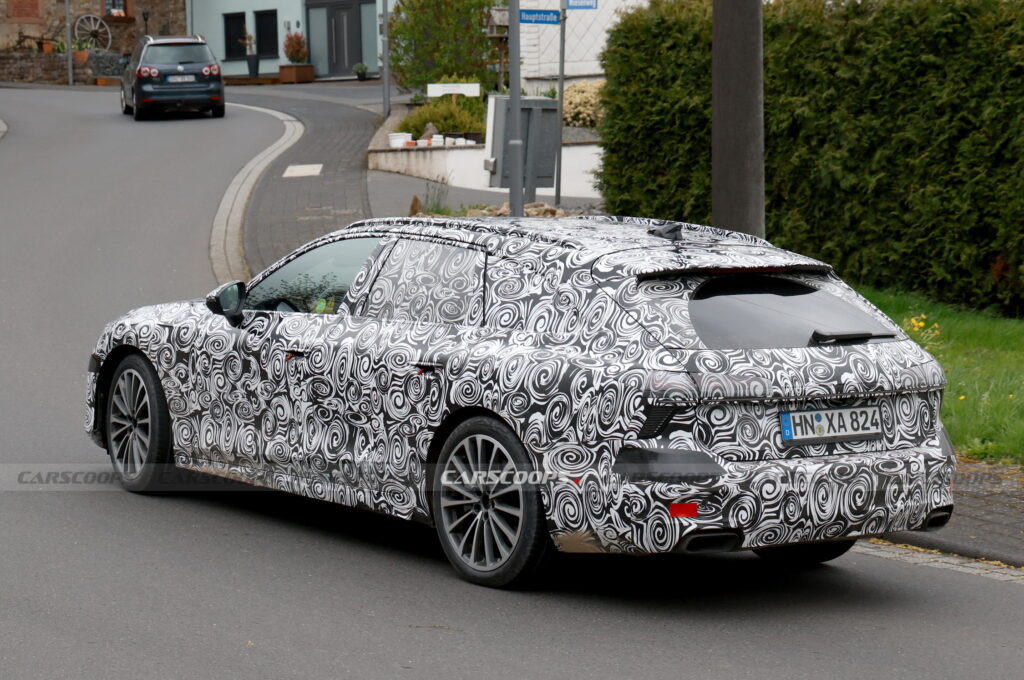
The A7 range is expected to ride on an updated version of the MLB platform known as the Premium Platform Combustion (PPC). This means it will likely be larger than its predecessor, too. For context, the current A6 estate measures 194.5 inches (4,939 mm) in length, 74.3 inches (1,886 mm) in width, and 57.8 inches (1,467 mm) in height.
Future Cars: Everything We Know About The Audi RS6 E-Tron
Although we’ve yet to score a good look at the interior, expect the current twin-screen MMI system to change to a single curved bezel housing both the OLED gauge cluster and infotainment touchscreen, akin to the setup in the new Q6 e-tron. Like that car, it will likely include an additional screen for the front passenger alongside a raft of digitally connected in-car services.
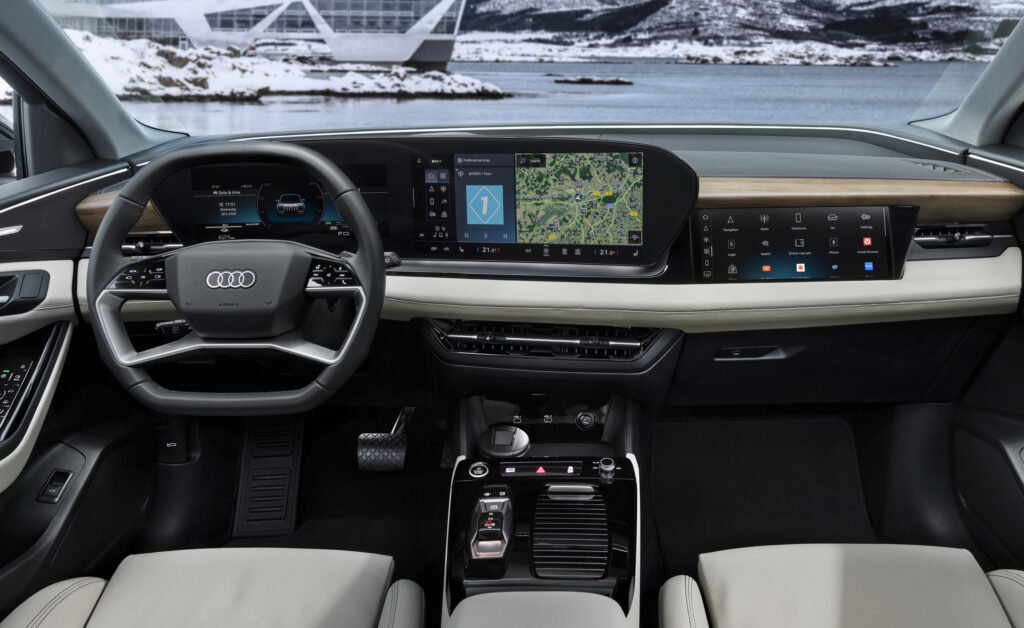
Efficiency Meets Performance
The A7 range will offer hybrid and plug-in hybrid powertrains to meet increasingly stringent emissions standards and buyer preferences for fuel efficiency. The PHEV model is expected to utilize a 14.4 kWh lithium-ion battery, providing an electric-only range of approximately 60 miles, or nearly 100 kilometers.
Future Cars: What We Know About The Next 2026 Audi Q7
For performance enthusiasts, the S7 sedan and wagon and the range-topping RS7 will join the fray. Word has it that these variants will feature a PHEV powertrain sourced from the Porsche Panamera, consisting of a twin-turbo 4.0-litre V8, an electric motor, and a 17.9 kWh battery pack, delivering nearly 700 horsepower.
Rivals and Reveal
Positioned to compete with BMW’s 5 Series and Mercedes-Benz E-Class, the A7, in both sedan and Avant forms, will likely debut early next year, potentially as a 2026 model year offering in North America.
Keep an eye out for more updates as we approach its official reveal.
What do you think of Audi’s new design language? Share your thoughts in the comments below.




